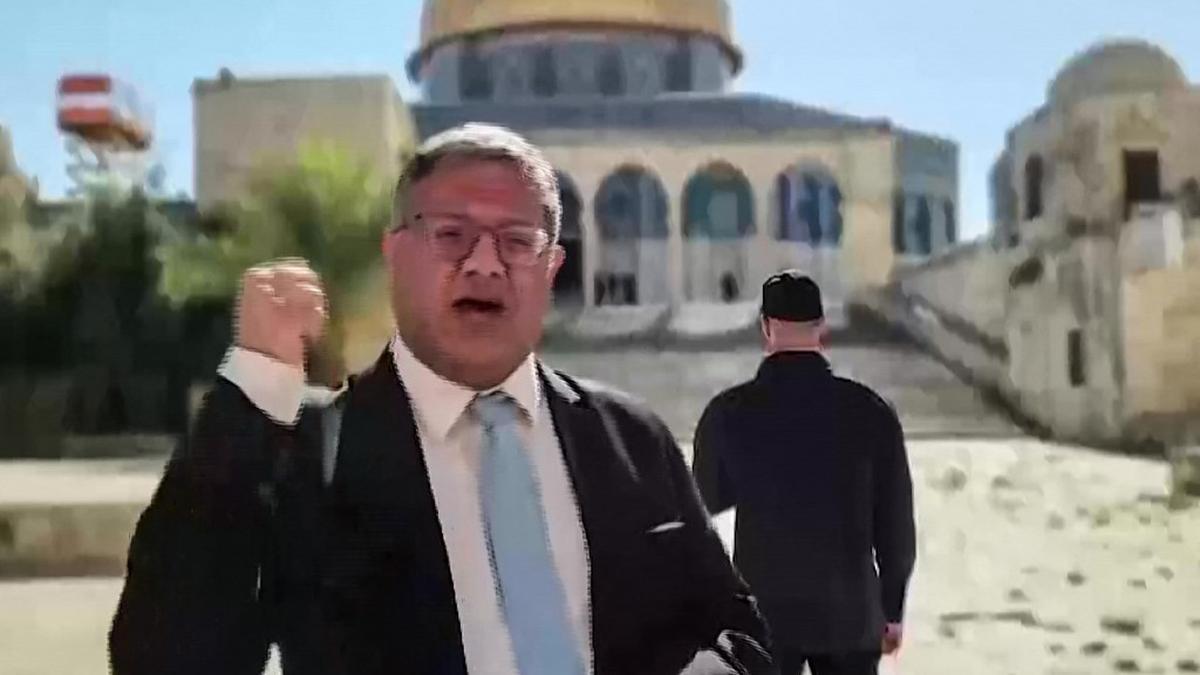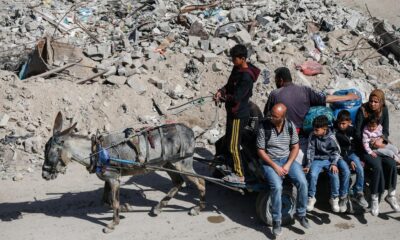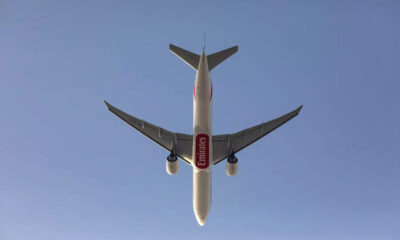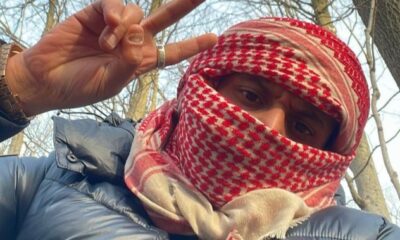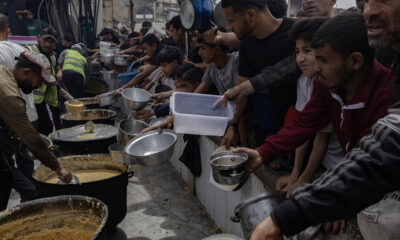Israeli Prime Minister Benjamin Netanyahu made a surprise visit to troops in southern Gaza on July 18, his office said, just days before he was set to give a speech to the U.S. Congress.
Mr. Netanyahu’s visit to the southern city of Rafah was announced hours after Israel’s far-right national Security Minister, Itamar Ben-Gvir, visited Jerusalem’s most sensitive holy site. The move could disrupt sensitive talks aimed at reaching a cease-fire in the 9-month-old Israel-Hamas war. Tensions over the compound have fueled past rounds of violence.
Mr. Ben-Gvir, an ultranationalist settler leader, said he had gone up to the contested Jerusalem hilltop compound of Al-Aqsa Mosque to pray for the return of Israeli hostages “but without a reckless deal, without surrendering.” Israeli negotiators landed in Cairo on Wednesday to keep working on the talks.
The two leaders’ visits came hours after Israel’s parliament overwhelmingly passed a resolution rejecting the establishment of a Palestinian state. The vote, in an overnight session that lasted into Thursday morning, was largely symbolic and meant to send a message ahead of Mr. Netanyahu’s trip to the U.S.
Mr. Netanyahu’s office announced his visit to Rafah once the Prime Minister had exited the war-torn Palestinian territory, with more details expected later Thursday. He has made at least two previous trips to see troops in Gaza, in November and December.
Israeli forces invaded Rafah in early May, forcing most of the 2 million Palestinians sheltering there to flee. Rafah, once a crucial entry point for humanitarian aid, is now a dusty ghost town full of bullet-riddled apartment buildings with blasted-out walls and shattered windows. Very few civilians remain.
Mr. Ben-Gvir said Thursday while standing in front of the golden dome of Al-Aqsa Mosque that he “is praying and working hard” to ensure that Mr. Netanyahu will not give in to international pressure and will continue with the military campaign in Gaza.
Mr. Ben-Gvir last visited the site in May to protest countries unilaterally recognising Palestinian statehood.
Also Read | Senior Hamas official says group withdrawing from Gaza truce talks
He has been convicted eight times for offences that include racism and supporting a terrorist organisation. As a teen, his views were so extreme that the army banned him from compulsory military service.
As Security Minister, Mr. Ben-Gvir oversees the country’s police force. As a key coalition partner, Mr. Ben-Gvir also has the power to rob Mr. Netanyahu of his parliamentary majority and try to force early elections.
Mr. Ben-Gvir has used his influence to push forward pet projects and encourage Mr. Netanyahu to press ahead with the war in Gaza in the face of widespread calls to reach a cease-fire deal that would bring home hostages.
The Palestinian Foreign Ministry condemned Mr. Ben-Gvir’s visit as a “provocative intrusion” that endangered the fragile status quo regarding the Jerusalem hilltop compound, which is considered holy for both Muslims and Jews.
The site is revered by Jews as the Temple Mount, and by Muslims as Haram al-Sharif, a holy site and important national symbol. Mr. Ben-Gvir has frequently visited the site during times of conflict, drawing condemnation.

On Friday, the U.N.’s International Court of Justice is expected to issue an advisory opinion on the legality of Israel’s 57-year occupation of the Palestinian territories, an ongoing legal case not connected to the current Israel-Hamas war.
Overnight Israeli strikes Thursday in central Gaza killed at least 11 people, according to the Hamas-run Civil Defense organisation and hospitals. At least two children and two women were killed in air strikes on a house and a car.
In recent weeks, Israel has stepped up strikes in central Gaza, where many Palestinians have fled to escape fighting in other parts of the beleaguered territory. Israel’s military said it targeted a senior commander from the militant Palestinian group Islamic Jihad’s naval forces in Gaza City, and another Islamic Jihad commander responsible for launches in the city of Shejayiah.
Israel also said it killed a senior commander affiliated with Hamas and other militant groups in Lebanon. In a statement, Sunni al-Jamaa al-Islamiya, or the Islamic Group, identified him as Mohammad Hamed Jabbara and said he was killed in a strike in the western Bekaa area in Lebanon not far from the Syrian border. The Israeli military described Jabbara as a Hamas operative in Lebanon who helped coordinate Islamic Group attacks targeting northern Israel.
The war in Gaza, which was sparked by Hamas’ Oct. 7 attack on southern Israel, has killed more than 38,600 people, according to the territory’s Health Ministry, which does not distinguish between combatants and civilians in its count. The war has created a humanitarian catastrophe in the coastal Palestinian territory, displaced most of its 2.3 million population and triggered widespread hunger.
Hamas’ October attack killed 1,200 people, mostly civilians, and militants took about 250 hostage. About 120 remain in captivity, with about a third of them believed to be dead, according to Israeli authorities.

